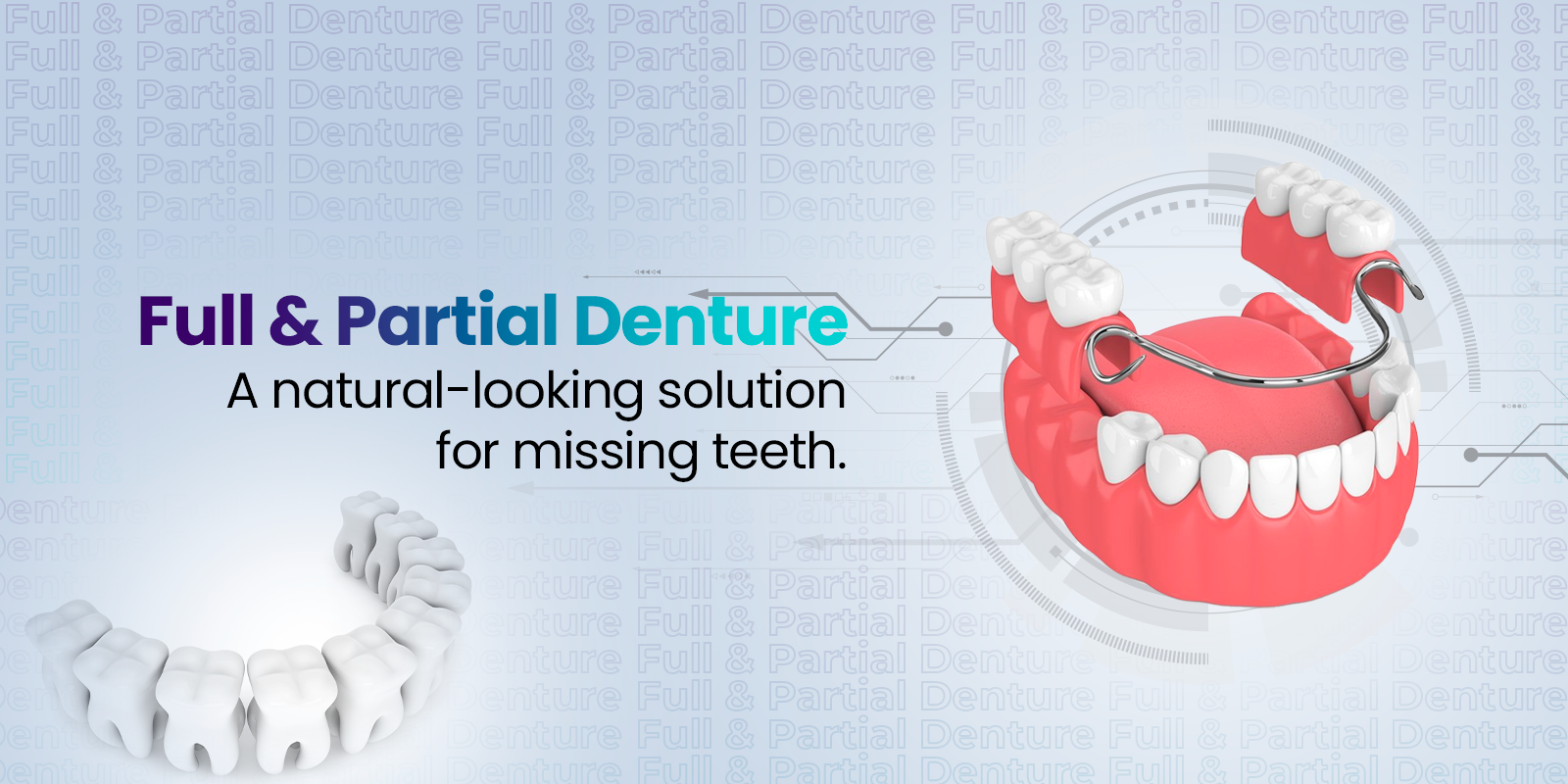
Dentist for Denture in Ahmedabad
The term "denture" refers to false teeth. Dental dentures are prosthetic devices that restore missing teeth in your mouth. They are constructed of hard-wearing materials like plastic or metal that mimic your natural teeth and gums for an undetectable replacement. A denture lets you chew, corrects speech during several visits, and ensures that the prosthetic is comfortable and well-fitting. It also enables you to remove it for cleaning.
When is Dentures needed?
Dentures may be needed depending on the number of teeth lost. Facial muscles might sag over time if teeth are lacking. Dentures are made to assist you improve your appearance by filling in the gaps in your facial profile. They also make regular eating, chewing, and speaking simpler.
Why is Dentures needed?
If you don't wear your dentures, you risk losing bone density. When bone loss happens, it can alter the appearance of your face. Your smile will be affected if you do not wear your full or partial denture. When you laugh or grin, the gaps between your teeth will be visible, affecting your confidence. Your gums will be affected if you have lost teeth and have no way to restore them. Other teeth may loosen, and the gums may become inflamed.
When does a person feel they require Dentures?
- If your gums are red, swollen, sensitive, or bleeding, it's time to see a dentist.
- Teeth that are loose, moving, or have greater gaps between them.
- You're suffering from a toothache.
- You already have a pair of missing teeth.
- You find it difficult to eat hard or chewy foods.
Process of Dentures
-
TAKING IMPRESSION
A few imprints of your mouth will be required when the suitable solution for your unique denture requirements has been discovered. Consider these the blueprints for designing and fabricating your dentures so that they fit exactly on your gum line and within your mouth.
The imprints are used to create a cast that will be utilised to build your dentures. You'll be back in the dentist's chair for a fitting after a preliminary set of false teeth has been made. The results of this will begin the process of fabricating your final dentures' fake teeth.
-
TEETH EXTRACTION
Whether or not you need any teeth removed depends on the state of your mouth and the condition of your existing teeth. You will be able to preserve some of your natural teeth and wear the partial denture with them in circumstances when a partial denture is being made.
If the greatest fit for dentures in your condition necessitates the removal of all teeth for full dentures, that will be the next step. It could be only a few teeth or a whole lot more. That selection will be influenced by the type of denture appliance you have and the state of your teeth and gums.
-
FINAL DENTURE INSTALLATION
It will take a few days to weeks for the swelling to subside and your gums to fully heal. This is determined by the number of teeth taken and the state of your gums at the time of extraction. You will be fitted with your permanent dentures after the swelling has subsided.
These would have been created from your mouth's final impression. As a result, the dentures are made to fit flawlessly in ideal circumstances. Because your mouth has been subjected to a lot of extra activity as a result of extractions, the fit may be slightly different.
FAQs
1) What is the number of appointments for fabrication of dentures ?
We install the other dentures over the course of four to five visits, with the exception of instantaneous dentures, which are installed right away.
2) Will my dentures become loose over time?
Dentures, like real teeth, can wear out over time. Dentures might become loose or distorted over time due to natural wear. Additionally, when your gums and bone structure change as you age, your dentures may begin to fit incorrectly.
3) What material is denture made of?
While there are a few different types of denture materials, most are made of plastic, primarily acrylic resin. You might also obtain porcelain dentures, which stay longer; however, acrylic dentures are more durable. This is due to the fact that acrylic clings better to the denture base and is easier to modify.
4)What can I eat with dentures?
Purees and soft foods like porridge, cooked cereals, chopped boiled eggs, and soup broth are the first step to diet after dentures.
